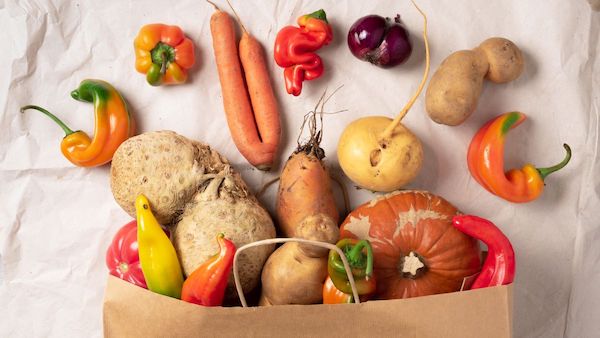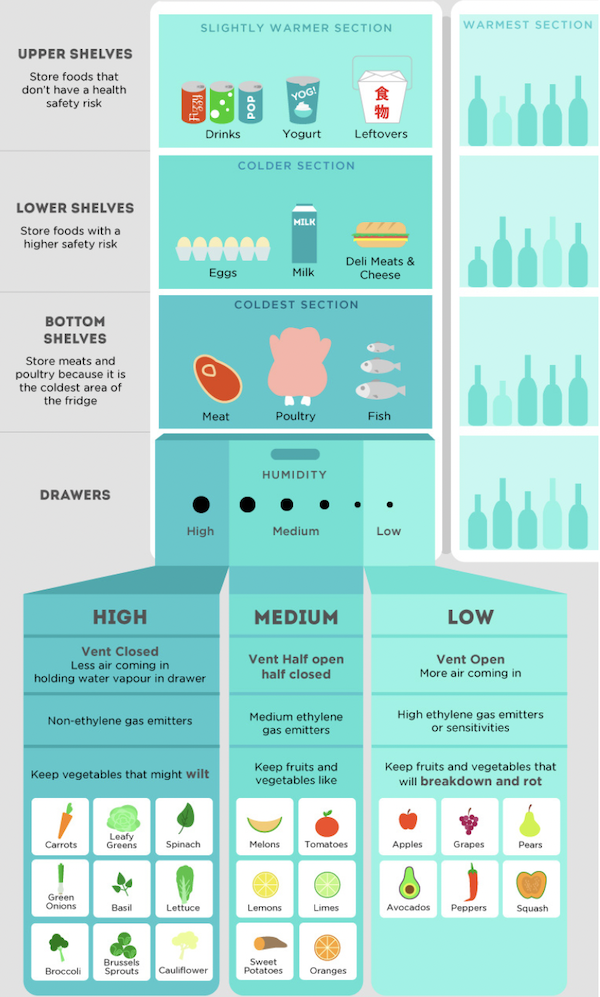25 May 2022, 21:30
By
Matt Hempy
Food waste is one of the biggest contributors to climate change. Astonishingly, one-third of all the food in the United States goes uneaten. If it was measured as a country, global food waste would be the third-largest greenhouse gas emitter, behind only China and the United States. When our food is thrown away and rots it releases greenhouse gasses, harmful to our climate. More emissions are released when food is transported to landfills, creating a secondary issue of increasing the size of our landfills.
Minimizing our food waste is one of the simplest ways to reduce our carbon footprint, and save money in the process. But it’s not just impacting our environment, for many, it’s impacting their wallets too. According to the US Dept. of Agriculture, the average family of four in the United States wastes $1500 every year on disposed food. Therefore, mitigating our food waste is beneficial for many reasons. Thankfully there are solutions you can implement today. Here are our tips and tricks to help keep food out of our trash cans and landfills.
GROCERY STORE GAMEPLAN
Plan out your weekly food schedule!
-
Create a list of what meals you want to cook this week, which days you may eat out, and then shop accordingly. If you plan out what you will eat, you are less likely to over-purchase food. Only purchase what you have planned for those meals. Applications like Mealime have millions of tasty recipes and allow you to create shopping lists very easily!
Take inventory
-
Before you go to your local grocery store, write down what foods you already have in your pantry and fridge so that you do not buy them twice! Applications like Kiff allow you to track food in your fridge and pantry so that nothing goes to waste. You can also try the new FridgeCam by Smarter which sends photos of your fridge to your phone to help prevent food waste!
.jpg)
Courtesy of Pexels
One week at a time
-
When you buy food for more than one week at a time, it can become more difficult to plan your meals, and you may even overestimate how much food you or your family will actually use or how long it will stay fresh, causing you to throw out food before it even hits the plate. The exception to this may be if you have to travel further for groceries where more frequent trips in the car are also not beneficial to the environment. In general, overbuying can cause you to lose money and create food waste, so be mindful of how fast you can realistically use the food.
Don’t shy away from ugly food
-
Bruised, weirdly shaped, or abnormal food is still nutritious and safe. If fruit or vegetables are on their last legs, then freeze them and use them for smoothies and blended drinks. Blemished food still needs a home! Services such as Imperfect Foods and Misfits Market save food from being thrown out and deliver it to your door.

Courtesy of Earth 911
MAKE YOUR FOOD LAST
Store your food the right way
-
Did you know that bananas emit a gas that ripens nearby fruits faster? Similarly, cakes, bread, and doughnuts will go stale quickly if put in the fridge. Tomatoes last longer when they are stored with the stem facing up. This guide explains how to keep your food as fresh for as long as possible.
Know the blueprints of your fridge
-
Raw meats go on the bottom shelf (it is the coldest part of the fridge). No eggs or milk in the fridge door (this is the warmest part). Likewise, let’s protect our veggies! Most vegetables should be placed in the high humidity drawer to ensure longevity. Remember to put your leftovers at the front of your fridge, where you won’t forget about them. You can even try dedicating a section of your fridge for food that you know will perish in the next couple of days.

Graphic from PartSelect
The freezer is your best friend!
-
If you know you won’t eat something, hit the “pause button” and get back to it later. However, not even your Ben and Jerry’s will last forever so make sure to check your freezer every once in a while. Use air-tight containers to prevent freezer burn, portion things in small reusable containers, and label and date each one to stay extra organized. With some foods, freezing can be trickier. Here are techniques for freezing fruits and vegetables.
COOKING TIPS
Two hours only rule
Repurpose dishes!
-
Meals such as casseroles, stews, soups, stir-fries, and even homemade pizzas are great ways to utilize random leftovers and ingredients that you may not know what to do with. Stale bread can become croutons and mushy raspberries can turn into a yummy vinaigrette! Try using some apples and oranges for a pitcher of refreshing Sangria! Here are a few other ways to try repurposing this week.
Get competitive!
Know your labels
Try Meal Delivery
-
Some of you may not have time for cooking during the week, and that’s okay! There are many companies that deliver fresh, sustainably-grown, and pre-measured food that prevents wasted food. Companies such as Sunbasket offer a variety of properly-sized organic meals with packaging that is entirely reusable or recyclable. Here is a list of other highly rated delivery services that you can try.
Donate your food
COMPOST
After planning your meals, shopping efficiently, storing your food properly, and cooking sustainably, there may still be leftovers such as an old apple core, or brown banana peel. Don’t stop here with your food waste prevention. Our last tip is to add your food scraps into compost.
Composting is very easy, and can even be done if you don’t have a yard. All it takes is a little preparation and time. Here is a great video from Realty Sage, How to Compost: Five tips in under five minutes so you can start composting easily. Composting will reduce your food waste, and after a few months, you will have healthy compost that can be used as topsoil making your garden grow even greener.
.jpg)
Courtesy of Pexels
Susan Miller-Davis, a fellow at Project Drawdown says it well, “Reducing food waste is one of a few climate solutions that cost almost nothing but deliver massive financial as well as environmental benefits.”
Back to news

.jpg)


.jpg)